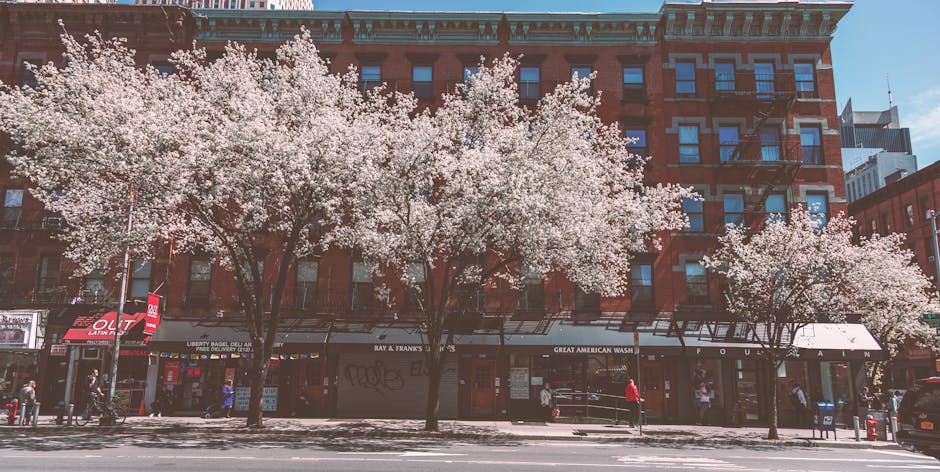## Poems About the Harlem Renaissance
The Harlem Renaissance stands as a remarkable period in American history, characterized by the flourishing of Black culture and artistic expression. Within this vibrant atmosphere emerged a wave of poetic voices, crafting poems that captured the essence of this transformative era. These poems offer a captivating glimpse into the hopes, struggles, and aspirations of a burgeoning community. They delve into the pulsating rhythm of the jazz age, the societal shifts driving the renaissance, and the individual experiences of Harlem residents.
30 Vibrant Poems about the Harlem Renaissance
Here are the poems:
Renaissance Dreams
In Harlem’s streets, a fire burned
A cultural revolution learned
To express, to create, to be free
A renaissance, for all to see
Jazz and Jive
Saxophones wail, trumpets blare
Rhythms pulsing, feet tapping there
In Harlem’s clubs, the music’s sweet
A symphony, to move the feet
Langston’s Legacy
His words, a powerful, poetic cry
A voice for the voiceless, he did try
To speak truth, to justice, to right
A beacon, in the dark of night
The High Priestess of Soul
Bessie Smith, a queen, a star
Her voice, a raw, emotional scar
Singing blues, of love, of pain
A legend, forever to remain
A Renaissance Man
Aaron Douglas, an artist true
Painting dreams, of a future anew
Visions of hope, of freedom’s call
A master, standing tall
The Weary Blues
The weary blues, they still prevail
In Harlem’s streets, a melancholy tale
Of pain, of sorrow, of strife
A blues, that cuts, like a knife
Schomburg’s Gift
A library, of knowledge so rare
Arturo Schomburg, a gift to share
A treasure trove, of black pride
A legacy, that will not subside
Harlem Nights
Nighttime, in Harlem’s city streets
A vibrant tapestry, of rhythm, and treats
Jazz, blues, and swing, in the air
A magical night, beyond compare
Zora’s Wisdom
Zora Neale Hurston, a writer bold
Her words, a reflection, of a life so cold
Of anthropology, and of art
A wisdom, that touches the heart
The Savoy Ballroom
The Savoy Ballroom, a place to be
A Mecca, for dancers, wild and free
The Lindy Hop, the Jitterbug too
A night, to remember, forever true
Duke Ellington’s Harlem
Duke Ellington, a maestro supreme
His music, a love song, to Harlem’s dream
A symphony, of jazz, so grand
A tribute, to the land
Claude McKay’s Cry
Claude McKay, a poet, so bright
His words, a cry, for justice, in the night
Of inequality, of strife
A cry, that echoes, for life
Enjoying these poems? You can also create your own poems with our Advanced AI Poem Generator.
Voices in the Night
The city whispers secrets in my ear
Of jazz and freedom, of dreams and fear
The sounds of saxophones and pianos swell
As I walk the streets, my soul begins to tell
The stories of the past, the struggles and the strife
The beauty and the pain, the fight for life
Swing Low, Sweet Chariot
I see the chariot, it’s coming for me
A vision of redemption, a sweet ecstasy
The music swirls, the people sway
As I lift my voice, I’m taken away
To a place of hope, of freedom and of cheer
Where the weight of chains is cast aside, and I’m clear
The Rhythm of the Streets
The city beats like a drum
A rhythm that’s infectious, a melody that’s won
The people move, their feet tapping out the time
As the music swirls, the energy is in its prime
The jazz and blues, the swing and the sway
The rhythm of the streets, that never fades away
A Night at the Cotton Club
I step inside, the music swirls around
A world of glamour, of beauty unbound
The jazz and the swing, the laughter and the tears
The Cotton Club, where dreams and secrets appear
The faces of the past, the stories they would tell
Of love and loss, of triumph and of sell
The Faces of Harlem
Their faces etched with care
Their stories told in whispers, their struggles shared
The faces of Harlem, a city rich and bold
A tapestry of dreams, of hopes and of gold
The faces of the past, the stories they would tell
Of love and loss, of triumph and of hell
The Blues of Duke Ellington
The blues of Duke, a language all their own
A cry of pain, a song of sorrow, a tune of moan
The notes and chords, a melody so fine
The blues of Duke, a song of the human heart and mind
The struggles and the strife, the beauty and the pain
The blues of Duke, a song that will remain
The Jazz of Louis Armstrong
His trumpet speaks, a voice of joy and pain
A story told in notes, of love and loss in vain
The jazz of Louis, a language all his own
A cry of triumph, a song of freedom, a melody that’s grown
The notes and chords, a symphony so fine
The jazz of Louis, a song that’s truly divine
A Dream Deferred
A dream deferred, like a fruit that’s left to decay
A dream put off, like the autumn leaves that fade away
The promise of tomorrow, of a brighter day
Fades like the sunset, and the darkness takes its sway
But still we hold on, to the hope that’s yet to be
A dream deferred, a promise yet to see
The Sound of Harlem
The sound of Harlem, a symphony so fine
A mix of jazz and blues, a melody divine
The sounds of the city, the music of the night
The sound of Harlem, a song that’s alive and bright
The laughter and the tears, the struggles and the strife
The sound of Harlem, a song that’s a symbol of life
The Dawn of a New Era
The morning sun, a fiery blade,
Cuts through the veil of racial shade,
Revealing dreams, both old and new,
As Harlem weaves its tapestry anew.
With each step, hearts beating fast,
We march towards a brighter past,
Where equality’s redemptive hold
Will set our souls forever bold.
Afro-Caribbean Hues
In the streets, a kaleidoscope play,
Where cultures blend, and traditions sway,
The beat of drums, a rhythmic flow,
Echoes secrets only gods know,
Vibrant hues – bright, rich, and bold,
Of Africa’s wisdom, forever told,
In every pattern and intricate design,
Lives the strength of a heritage divine.
Swing Low
Sultry nights, where Cotton Club secrets hide,
Bootlegged jazz whispers secrets inside,
The Charleston’s seductive sway,
Lures us to a bygone day,
When flappers danced, and speakeasies played,
A golden era, our hearts displayed,
Though darkness loomed, our spirits soared,
In the magic, we forever roared.
Consciousness Awakens
Amidst turmoil’s raging storm,
Echoes of equality’s form,
Insurrection’s embers glow,
Minds awakened, with will to know,
The fire of change, a nation’s cry,
Demands freedom, never to deny,
From suffocating chains, we break away,
And assert our rights, come what may.
Jazz Melodies
The saxophone cries tears of joy,
As Louis Armstrong’s trumpet employs,
A language rich, with stories untold,
Of African roots, where legends unfold,
In syncopated rhythms, we sway,
As music bridges every way,
The freedom songs of Emancipation’s call,
Echo through the walls, where hearts enthrall.
Freedom of Expression
When thoughts become treason, silence is key,
But artists defy, in protest’s decree,
Their canvases, a riot of color bold,
As creativity trumps the chains of cold,
Through poems, plays, and music’s abiding cry,
They demand justice’s never-ending sigh,
With every brushstroke, every melodic line,
Their voices rise, against the status quo’s crime.
The Renaissance Woman
A poet’s voice – a burning flame,
As Countee Cullen’s words ignite thegame,
Langston’s sharp wit, with words so bright,
Gives voice to the People’s plight,
Zora’s novels weave a web of truth,
Lena Horne’s torch, a beacon of youth,
Through every medium, they make their mark,
And forge a legacy, forever in the dark.
Celestial Bodies
Amidst the constellations, we find our way,
Guided by stars, where ancient traditions sway,
In cosmic rhythms, we lose our fears,
And dance, with feet that whispered through the years,
As planets align, a celestial band,
Harmony and justice, hand in hand,
Through the vibrations of a cosmic whole,
We heal the rifts, and make our souls unfold.
Songs of the Uprising
In the heart of the city, where the buildings rise high,
A vibrant sound echoes, a cry piercing the sky.
The spirits of ancestors, their voices abound,
As a new generation wakes, its purpose to be found.
Harlem, oh Harlem, you wear many a crown,
A beacon of hope, where dreams never drown.
The whispers of Schomburg, the songs of Langston,
A symphony of souls, daybreak to dusk dawn.
The Unfurling of Wings
Like the phoenix, our spirit, it breathes life anew,
Fanning the embers, kindled to brilliant hues.
A canvas of color, the shades of our skin,
Gathered around the table, let the feast of wisdom ply in.
Oh, Harlem Renaissance, your legacy strong,
We take your sweet hand, with respect and grace belong.
Your tale, a resplendent, stunning narrative,
Of the will to thrive, against all the peripheral.
The Hands That Built
Calloused by struggle, sturdy as stone,
The hands that built Harlem, let their stories be shown.
They swung a hammer, grasped papers and quill,
The craft of their hands, resounding on the hill.
In the libraries and the streets, they fought back the night,
Spreading the seeds of knowledge, so that visions ignite.
Harlem, oh Harlem, your foundation, unbroken,
A tribute to the hands that shook and shaped the world when awoken.
Melodies of the Marketplace
Beneath the awnings of the streets, the people gather near,
The sounds of haggling and laughter, of hope that conquers fear.
The marketplace, a heartbeat of Harlem’s soul,
Echoes voices empowered, culture entwined, the role of the whole.
The fragrance of spices, the colors of life bloom,
A sanctuary for generations yet to come.
The chatter of children, the tickle of strings,
Symphonies brought forth, for freedom to sing.
The Tapestry of our Hope
A resilient tapestry, woven through the ages and strife,
A masterpiece of hope, in the journey of life.
In Harlem, this vibrant, intricate work began,
The palette of promise, of freedom to claim and hold and plan.
Each thread, a resplendent color bold,
A tale of resilience, the past’s powerful hold.
The artists and poets, musicians and sage,
The architects of the path, where their children shall roam without cage.
Echoes of the Elders
In whispers of wisdom, our legacy does dwell,
The elders’ echoes beckon, a sage spell.
Oh, enchanting teachers, your guidance burns bright,
As a beacon of hope in the midnight of life’s fight.
From age-old stories, our pride is refined,
Woven intricately throughout every line.
A glorious inheritance, no coin nor trinkets compare,
By the legacy of the elders, the fathomless well of our being ensnares.
Harlem’s Lullabies of Love
A whispering breeze floats gentler than dove,
Mother’s sweet lullaby caresses the eve.
Harlem’s children, their dreams the night carries,
The soul of the ancestors, their protective barrier.
The legacy of love, an unbroken line of song,
Soothing hurts, fears, and woes, all the night long.
Tucked in tight, dreams aloft, our children navigate the stars,
Steeped in the enchantment and reverence of the history scarred.
A Portrait of Resilience
The strength of the people, eternal and true,
A portrait of resilience in visages they ensue.
Breathing life into these hallowed halls,
The immortal fortitude in each soul enthralls.
The weight of the world, it might have shattered the few,
Though it carved the visage of an unwavering hue.
Harlem, forevermore, your spirit won’t rest,
Boundless, indestructible, out of the shadows—told from the breast.
In the Heart of the Movement
From the clutches of discrimination, the voice of the movement rings loud,
Harlem’s heart thrums wild and fierce, the demand for equal right unbowed.
Through the eyes of the revolution, we march hand in hand,
A fight for the legacy of future generations to take a firm stand.
Bound by unyielding bond, no chain nor segregation holds,
In the heart of the movement, histories get told.
Songs and stories, anthems of progress entwined,
A resilient heartbeat of Harlem’s soul intertwined.
From the Shadows to the Light
Beneath the son’s gentle, first golden ray arises,
A collective soul, from the shadows dispersed wisps of hues rising.
The long-hidden stories of Harlem’s ancestors bold,
In quiet whispers, their legacy retold.
Oh, the many-splendored voices, breaking the chains of the night’s hold,
Rise with the sun, your stories as gold.
From the shadows to the light, their legacy casts no doubt,
Harlem’s soul triumphs, and the multitudes shout.
Popular Poems that Define the Harlem Renaissance Era
The Negro Speaks of Rivers by Langston Hughes
This poem is a powerful expression of the African American experience, tracing the history of the black man from the ancient rivers of Egypt and Ethiopia to the modern-day struggles in the United States. Hughes’ rich, lyrical language evokes a sense of pride, dignity, and resilience, as he proclaims: “I’ve known rivers / I’ve known rivers ancient as the world and older than the / Flow of human blood in human veins.”
The Weary Blues by Langston Hughes
This poem is a celebration of the blues, a genre of music that originated in the Deep South. Hughes’ vivid imagery and musical language capture the spirit of the blues, as he describes the sorrowful, soulful sounds of a jazz piano player in a Harlem nightclub. The poem is a testament to the power of music to express the deepest emotions of the human experience.
If We Must Die by Claude McKay
Written in response to the race riots of 1919, this sonnet is a powerful call to arms, urging African Americans to stand up for their rights and fight against oppression. McKay’s language is bold, defiant, and inspiring, as he declares: “Like men we’ll face the murderous, cowardly pack, / Pressed to the wall, dying, but fighting back.”
The New Colossus by Claude McKay
This sonnet is a scathing critique of American democracy, written in response to the 1921 Tulsa Race Massacre. McKay’s poem is a searing indictment of the hypocrisies of American society, as he compares the Statue of Liberty to a “brazen giant” that mocks the ideals of freedom and justice.
Mother to Son by Langston Hughes
This poem is a poignant and powerful expression of the complexities of mother-son relationships in the African American community. Hughes’ use of dialect and colloquial language creates a sense of intimacy and urgency, as the mother implores her son to persevere in the face of adversity.
The Darkling Thrush by Claude McKay
Written in 1922, this poem is a meditation on hope and despair in the aftermath of the Tulsa Race Massacre. McKay’s language is beautiful, evocative, and haunting, as he describes the “darkling thrush” that sings in the depths of winter, symbolizing the enduring power of the human spirit.
Fear by Claude McKay
This poem is a powerful exploration of the psychology of fear in the African American experience. McKay’s language is stark, raw, and unsettling, as he describes the ways in which fear can paralyze and oppress, but also fuel resistance and defiance.
Harlem by Langston Hughes
This poem is a vivid and evocative portrait of life in Harlem during the 1920s. Hughes’ use of imagery, rhythm, and dialect creates a sense of energy, vitality, and creativity, as he celebrates the music, art, and literature of the Harlem Renaissance.
Ballad of the Brown Girl by Sterling A. Brown
This poem is a beautiful and poignant exploration of the experiences of African American women during the Harlem Renaissance. Brown’s language is rich, sensual, and evocative, as he describes the beauty, strength, and vulnerability of the “brown girl.”
Song for a Dark Girl by Langston Hughes
This poem is a haunting and evocative exploration of the experiences of African American women during the Harlem Renaissance. Hughes’ language is simple, direct, and powerful, as he describes the struggles, sorrows, and triumphs of the “dark girl.”
The Harlem Renaissance: A Cultural and Literary Revolution
The Harlem Renaissance was a cultural, social, and artistic explosion that took place in Harlem, New York, during the 1920s and 1930s. This movement, also known as the “New Negro Movement,” was characterized by a surge of creativity in literature, music, art, and politics among African Americans. At the heart of this movement was a renewed sense of pride in African American heritage, culture, and identity.
One of the most enduring legacies of the Harlem Renaissance is the poetry that was produced during this time. Poets of the Harlem Renaissance used their words to challenge stereotypes, express frustration with the status quo, and celebrate black identity and experience. Their poems were published in magazines, newspapers, and anthologies, and they performed their works at literary readings, clubs, and theaters.
Themes of Harlem Renaissance Poetry
Harlem Renaissance poetry covered a wide range of themes, but some of the most common include:
Identity and Heritage
Many Harlem Renaissance poets wrote about the importance of embracing one’s African American heritage and identity. They celebrated black culture and history, and they challenged the negative stereotypes that had been imposed on black people for centuries. Poets like Langston Hughes, Claude McKay, and Countee Cullen wrote powerful poems about the beauty and richness of black identity.
Social and Political Issues
Harlem Renaissance poetry was also known for its engagement with social and political issues. Poets wrote about the struggles of working-class black people, the violence and discrimination they faced, and the need for political change. They addressed issues like lynching, segregation, and the fight for civil rights. Notable poets who wrote about social and political issues include W.E.B. Du Bois, Angelina Weld Grimké, and Jean Toomer.
Love and Relationships
Love and relationships were also popular themes in Harlem Renaissance poetry. Poets wrote about the complexities of love, the pain of heartbreak, and the joy of connection. They explored the relationships between men and women, as well as the relationships within the black community. Harlem Renaissance poets like Zora Neale Hurston, Anne Spencer, and Gwendolyn Bennett wrote beautiful and moving poems about love and relationships.
Influences on Harlem Renaissance Poetry
Harlem Renaissance poetry was influenced by a variety of literary and cultural traditions. Some of the most significant influences include:
African American Folklore and Music
Harlem Renaissance poets drew inspiration from African American folklore and music, including blues, jazz, and spirituals. They used the rhythms and cadences of these musical forms in their poetry, and they incorporated elements of folklore and mythology into their works. Langston Hughes, in particular, was known for his use of blues and jazz rhythms in his poetry.
Modernist Literature
Harlem Renaissance poetry was also influenced by modernist literature, including the works of T.S. Eliot, Ezra Pound, and Gertrude Stein. Poets of the Harlem Renaissance adopted some of the techniques and styles of modernist poetry, such as stream-of-consciousness narratives and fragmented imagery. They also engaged with modernist themes, such as the dislocation and fragmentation of urban life.
The African Diaspora
Harlem Renaissance poetry was deeply connected to the African diaspora, the global spread of African peoples and cultures. Poets wrote about the connections between black people in the United States and those in Africa, the Caribbean, and South America. They explored the shared experiences of black people across the diaspora, as well as the unique cultures and histories of each community.
Lasting Impact of Harlem Renaissance Poetry
The poetry of the Harlem Renaissance had a lasting impact on American literature and culture. It helped to establish a new literary tradition centered on black experience and identity, and it inspired future generations of black writers and artists. The poets of the Harlem Renaissance also paved the way for social and political change, using their words to challenge injustice and promote equality.
Today, the poetry of the Harlem Renaissance continues to be read and studied, and it remains a powerful testament to the creativity, resilience, and vision of black people in America. The poets of this movement left a legacy of literary excellence and social engagement that continues to inspire and challenge us today.



